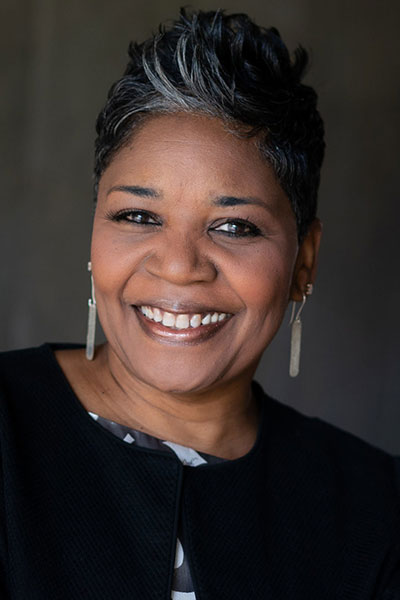According to Dwinita Mosby Tyler, PhD, advancing diversity, equity, and inclusion (DEI) begins with an internal process of education and self-reflection that progresses toward active, actionable allyship.

Dr. Mosby Tyler, CEO and founder of The Equity Project, LLC, delivered the ACR Convergence 2024 Opening Session keynote address, The Transformative Power of Allyship in Rheumatology, on Friday, Nov. 15. The session will be available on-demand to all registered ACR Convergence 2024 participants after the meeting through Oct. 10, 2025, by logging into the meeting website.
Dr. Mosby Tyler identified the ideal place to begin one’s DEI journey as “mirror work,” which means reflecting and finding balance in our focus between how today’s interpersonal climate affects us and those around us personally rather than primarily focusing on the external “window work” of current events, political discourse, and other factors that often dominate our attention and persist outside of one’s control. According to Dr. Mosby Tyler, attentiveness in our daily personal lives is foundational to building allyship.
“We have to build our capacity for noticing,” she explained. “If you want to think about the core credential for being a good ally, it is that you noticed in the first place.”
However, internal reflection and learning about the principles of DEI is only the first step in a larger journey. After this initial phase, allies must live by and embody these principles and, eventually, lead efforts to change systems that are not equitable and inclusive of all people. Allyship is a verb, not a noun, according to Dr. Mosby Tyler.
“To ally is an action,” she said. “What we’ve seen historically is a lot of allyship that is passive.”
Actionable allyship often involves interactions with others who carry different viewpoints, including those who may have prejudiced, preconceived notions about the very concept of DEI. Dr. Mosby Tyler was adamant that her DEI philosophy avoids labels like “good people versus bad people” and focuses on an individual’s mental models.
“Our mental models will drive how we hear, receive, or participate in conversations,” she explained.
She identified and defined five mental models, ranging from active opposition (a mental process that leads an individual to consider themself a strong opponent of DEI) to overactive awareness (a mental process hyper-focused on DEI, sometimes to the point that it alienates others who know or understand less than the individual does). Recognizing and navigating the differences among these models is a critical piece of actionable allyship.
“When I do meet a person in an active opposition mental model, a part of my growth is that I want to learn where their opposition is coming from versus debating it because it’s wrong,” Dr. Mosby Tyler said.
Such strategies reframe discussions and actions to focus on building connections. Dr. Mosby Tyler said that the No. 1 goal in her DEI work is to eliminate feelings of “outsiderness” for everybody.
“Equity work, as I have seen it, takes love and caring,” she said. “And if you don’t have that in you, you’re not going to do it.”
ARP President Aileen Ledingham, PT, MS, PhD, delivered welcoming remarks during the Opening Session and also spoke about the importance of DEI while praising the interdisciplinary nature of ACR Convergence.
“We know that collaborating in a diverse, interdisciplinary team of rheumatologists and rheumatology professionals leads to more effective patient treatments, greater work efficiency, and stronger professional relationships among colleagues and staff,” Dr. Ledingham said. “No other conference in America offers the same breadth of scientific, educational, and networking opportunities across the professional disciplines as ACR Convergence does.”
During her opening remarks, ACR President Deborah Dyett Desir, MD, also highlighted the importance of DEI and belonging, among other points of emphasis driving the ACR’s mission, vision, and brand values, including issues like climate change, accessible in-person and online educational programming, global outreach, and continued advocacy efforts on Capitol Hill and in statehouses across the country on behalf of the rheumatology community and its patients. Dr. Desir emphasized that these initiatives serve a vital, singular purpose.
“The brand promise of the American College of Rheumatology is, ‘We are here for you, so you can be there for your patients,’” she said.

Registered ACR Convergence 2024 Participants:
Watch the Replay
Select ACR Convergence 2024 scientific sessions are available to registered participants for on-demand viewing through October 10, 2025. Log in to the meeting website to continue your ACR Convergence experience.
